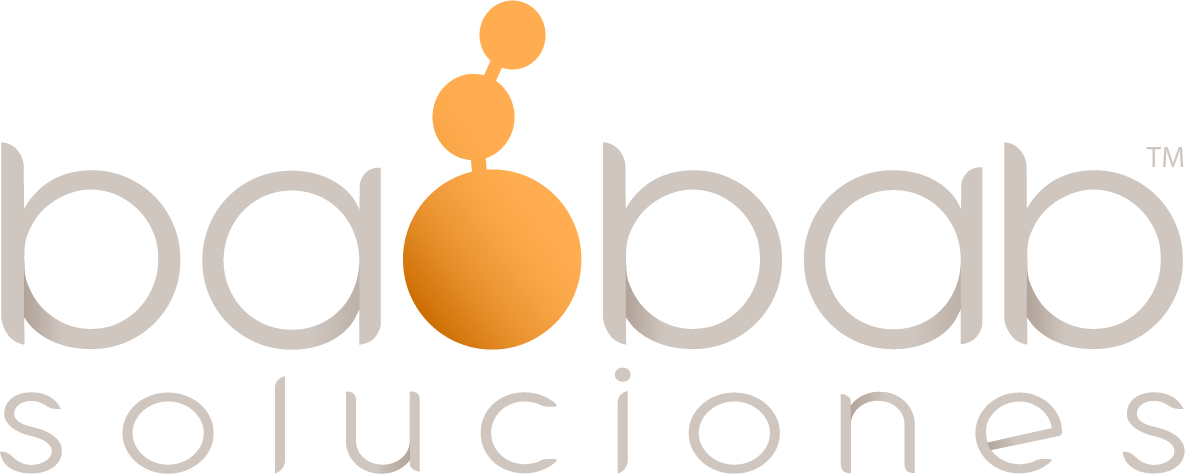Efficiency is fundamental in retail. According to a study by Simbe and Coresight Research, companies in the sector have lost at least 5% of their operating margin due to inefficiencies in stock, pricing, and logistics. In the quest to minimize risks, many have adopted “lean” approaches. However, there’s an inherent danger in being “too” efficient, as any problem can lead to significant disruptions affecting sales, company image, and ultimately, the bottom line.
A common temptation in risk management is to overprotect against potential problems, which reduces efficiency, increases inventories, and diversifies or adds redundant suppliers. While these strategies can reduce certain risks, they also increase costs and decrease operational agility.
You might wonder: How can I manage risks in a balanced way without sacrificing efficiency or operational agility? This blog will tell you how.

AI for efficiency and operational agility
Artificial Intelligence enables managing risks within reasonable thresholds with minimal impact on efficiency. By using AI, companies can gain a more accurate and comprehensive view of their supply chains, allowing for better decision-making and overall resilience against uncertain and adverse contexts.
What does AI offer?
Predictive Tools
AI provides predictive tools in two key ways:
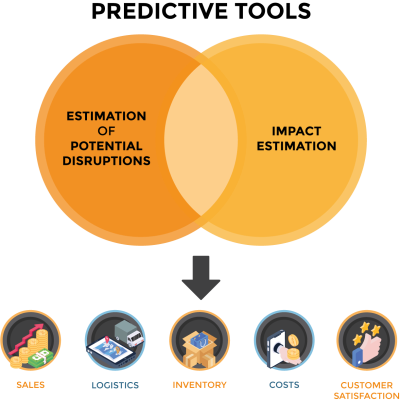
Disruption Forecasting
AI can calculate the likelihood of certain disruptive events occurring. By analyzing large volumes of historical and current data, AI identifies patterns and trends, enabling the anticipation of possible supply chain interruptions or issues.
Impact Estimation
Beyond predicting events, AI can also estimate their potential impact on the business. This capability allows companies to evaluate not just the probability of an event but also its possible consequences, which is crucial for prioritizing preventive and reactive actions.
Focusing on what really matters is crucial. By analyzing the probability and impact of events, companies can make smart decisions to reduce risks and damages, prioritizing serious threats and not wasting time on unlikely or low-impact scenarios. This way, decision-makers have more elements to direct their efforts, resources, and strategies more effectively and efficiently.
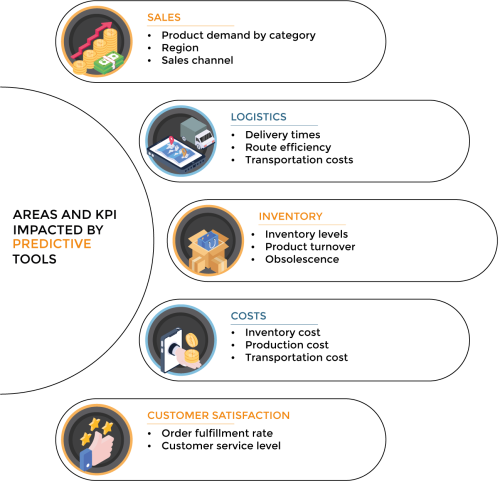
Prescriptive Tools
In addition to predictive capabilities, AI offers prescriptive tools that enable not only forecasting but also optimal action during disruptions. These tools contribute in two ways:
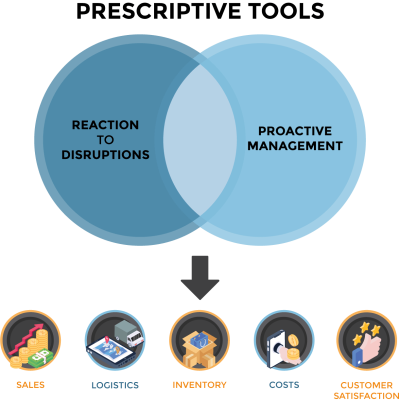
Disruption Response
When a disruption occurs, what actions should be taken? AI’s prescriptive tools allow for quick reactions and the best possible decision in that context. Using advanced algorithms, AI can recommend specific actions based on real-time data and simulation models, helping mitigate the negative impact of disruptions.
Proactive Management
AI can optimize production planning, inventory management, and coordination with suppliers, ensuring the supply chain is flexible and resilient. By leveraging AI, we can design, plan, and operate the supply chain to make the most robust decisions possible. This means considering efficiency as a central objective, minimizing negative impacts, and being better prepared to act in the face of disruptions.
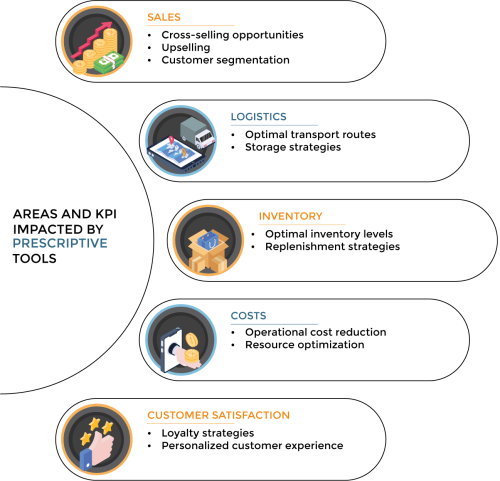
To effectively implement AI with predictive and prescriptive tools, it’s essential to have an interdisciplinary team of experts to fully leverage the opportunities these technologies offer. These teams possess detailed knowledge of the technologies and methodologies, allowing them to assess the specific needs of the company and select the most appropriate solutions.
Additionally, companies with experience, like baobab, understand the challenges and opportunities of your business firsthand, adapting proposals to the characteristics and needs of your organization. They are a perfect ally to help in strategic planning and risk management, ensuring a safe and responsible implementation.
If you need help to improve your company’s efficiency with AI, contact us.

Artificial Intelligence offers a broad range of options to improve the profitability and resilience of the retail supply chain. By combining predictive and prescriptive tools, companies can manage risks more effectively, maintain operational efficiency, and be better prepared to face any setbacks. Moreover, the strategic integration of AI in supply chain management not only protects against risks but also creates a competitive advantage.
Want to know more about AI in retail? Download our eBook “Retail Inteligente.”
